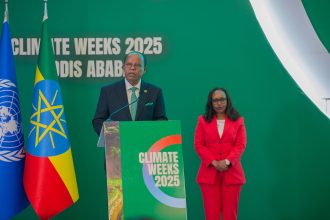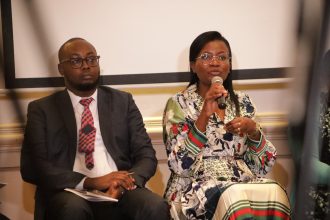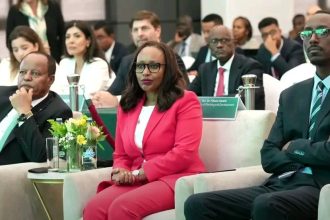By Henry Neondo
As African negotiators gather in Addis Ababa for the pre-summit meetings leading to the Second Africa Climate Summit (ACS2), the calls for climate finance, just transition, and political unity echo loudly. The continent, already on the frontline of climate impacts, cannot afford more promises that fail to trickle down to its most vulnerable communities. Yet, while the urgency is clear, the pathway to ensuring finance reaches those who need it most remains blurred.
For over a decade, Africa has heard repeated climate finance pledges from developed nations. From the much-publicized USD 100 billion annual commitment in 2009 to the upcoming negotiations on a new collective quantified goal, the rhetoric has outpaced reality. Only a fraction of these funds materialize, and even less reaches the grassroots—the smallholder farmers, pastoralists, women’s groups, and youth-led initiatives who face the daily brunt of climate change. Without addressing this accountability gap, Africa risks another cycle of high-level summits with little impact on the ground.
Negotiators at the Addis Ababa meeting rightly pointed to Africa’s vast resource wealth, including critical minerals valued in the trillions. These resources are touted as leverage for the continent’s energy transition. Yet, unless safeguards are put in place, the race to exploit these minerals could simply replicate old patterns of extractivism. True climate justice demands that Africa ties resource exploitation to community benefit-sharing frameworks, ensuring local populations gain from the green transition rather than lose their lands and livelihoods.
The point made by Evans Davie Njewa—that climate finance must come primarily in the form of grants rather than loans—cannot be overstated. Many African nations are already debt-distressed. To saddle them with more loans under the banner of climate finance would be both unjust and unsustainable. At COP30 in Brazil, African negotiators must collectively push for grant-based funding that prioritizes adaptation, resilience, and poverty reduction.
But securing more pledges is not enough. Africa must demand mechanisms that ensure direct access to funds by communities. Too often, climate finance is lost in bureaucratic bottlenecks, captured by elites, or funneled through intermediaries that never engage with those most affected. What is needed are localized funding windows—through local climate funds, municipal governments, and civil society platforms—that guarantee grassroots groups can design and implement adaptation projects tailored to their realities.
Another critical issue is technology. Negotiator Angelina Tutuah Mensah was right to warn against unsuitable or hazardous technologies being imposed on Africa. Too often, so-called climate solutions come packaged with intellectual property barriers or high costs that undermine local ownership. African negotiators at COP30 must press for genuine technology transfer, capacity-building, and intellectual property waivers that empower African innovators. Climate solutions should emerge from and be adapted to Africa’s realities, not imported wholesale from elsewhere.
Equally important is the question of political coherence. While negotiators call for stronger African Union leadership, the reality is that national interests often fracture Africa’s collective bargaining power. To maximize influence at COP30, Africa must adopt a binding continental position on climate finance access, loss and damage, and just transition frameworks. Anything less risks diluting Africa’s negotiating strength on the global stage.
The truth is stark: Africa contributes less than 4 percent of global emissions, yet it is paying the highest price for a crisis it did not create. For the millions of Africans facing food insecurity, displacement, and climate-induced poverty, climate finance is not an abstract diplomatic issue—it is about survival. COP30 must move beyond pledges to delivery, beyond promises to pathways that place grassroots resilience at the center of global climate action.
If African negotiators can seize this moment to demand grant-based finance, community-driven mechanisms, and fair technology transfer, COP30 could mark a turning point. But if the continent settles for recycled promises and exploitation of its resources without safeguards, the cycle of climate injustice will continue.
Africa’s voice has never been louder in the climate space. What remains is to ensure it is not just heard, but acted upon—with grassroots communities as the ultimate beneficiaries of the climate finance battle.
The writer is the Advocacy, Campaigns and Communication Lead, Africa Coalition of Communities Responsive to Climate Change (ACCRCC)




